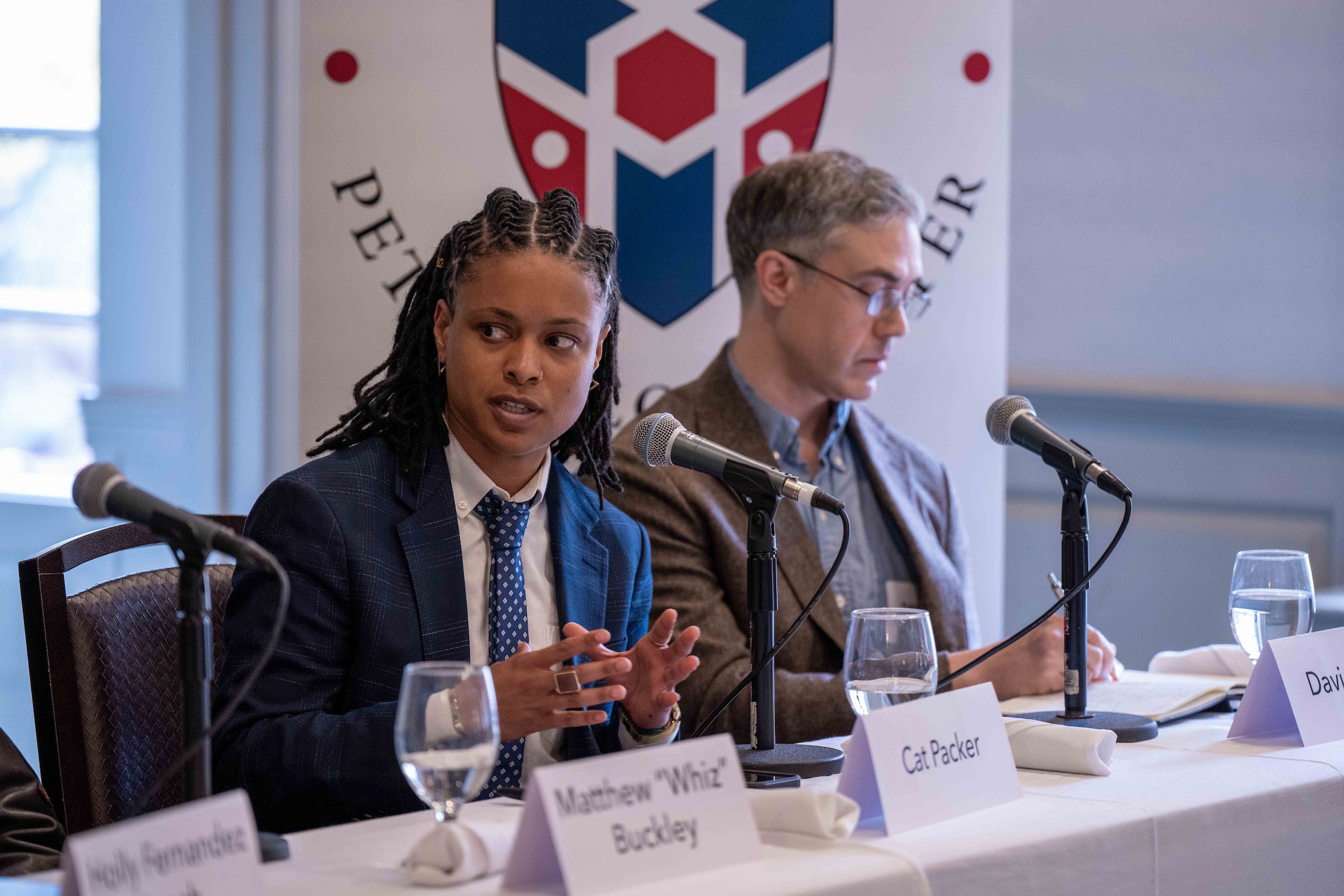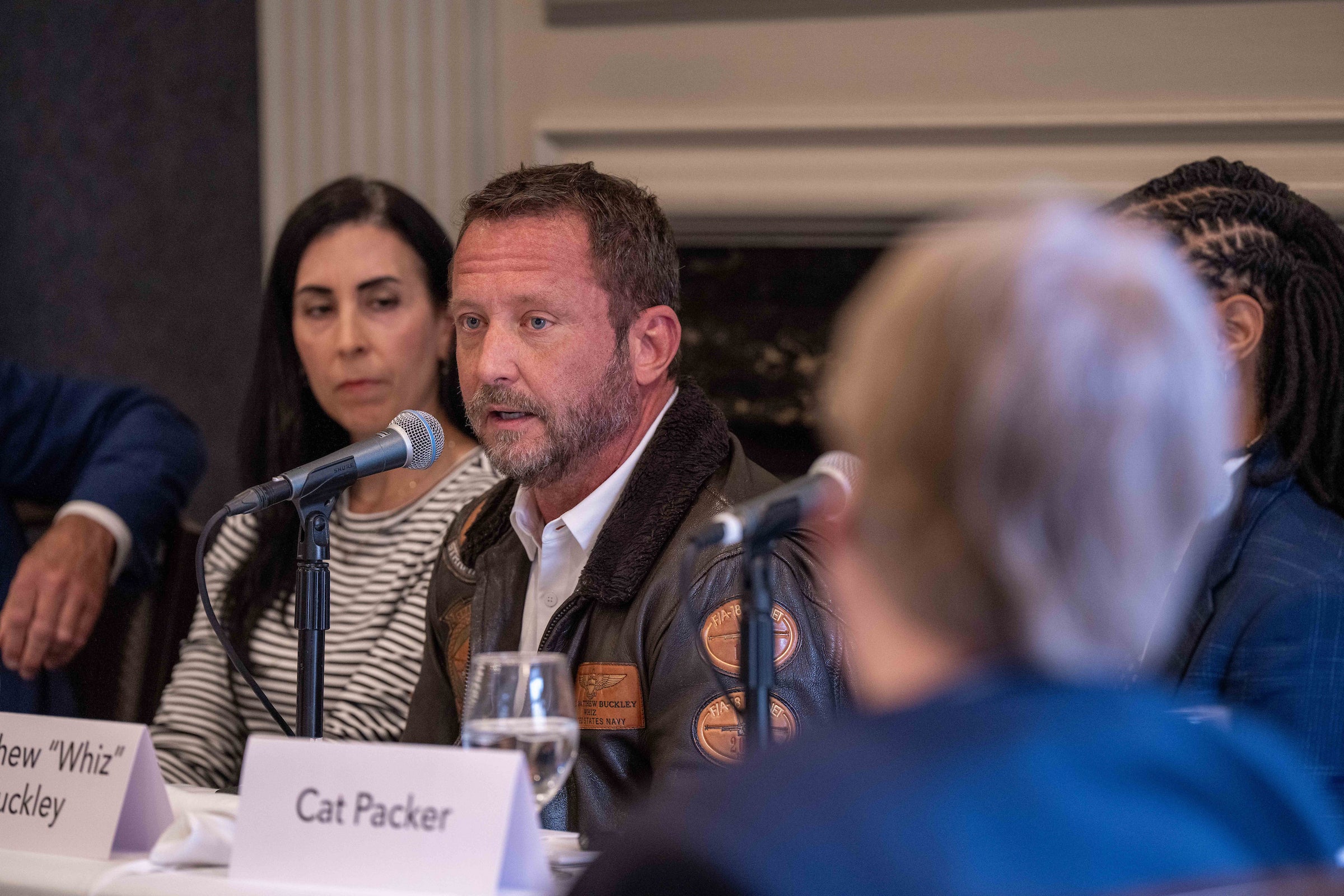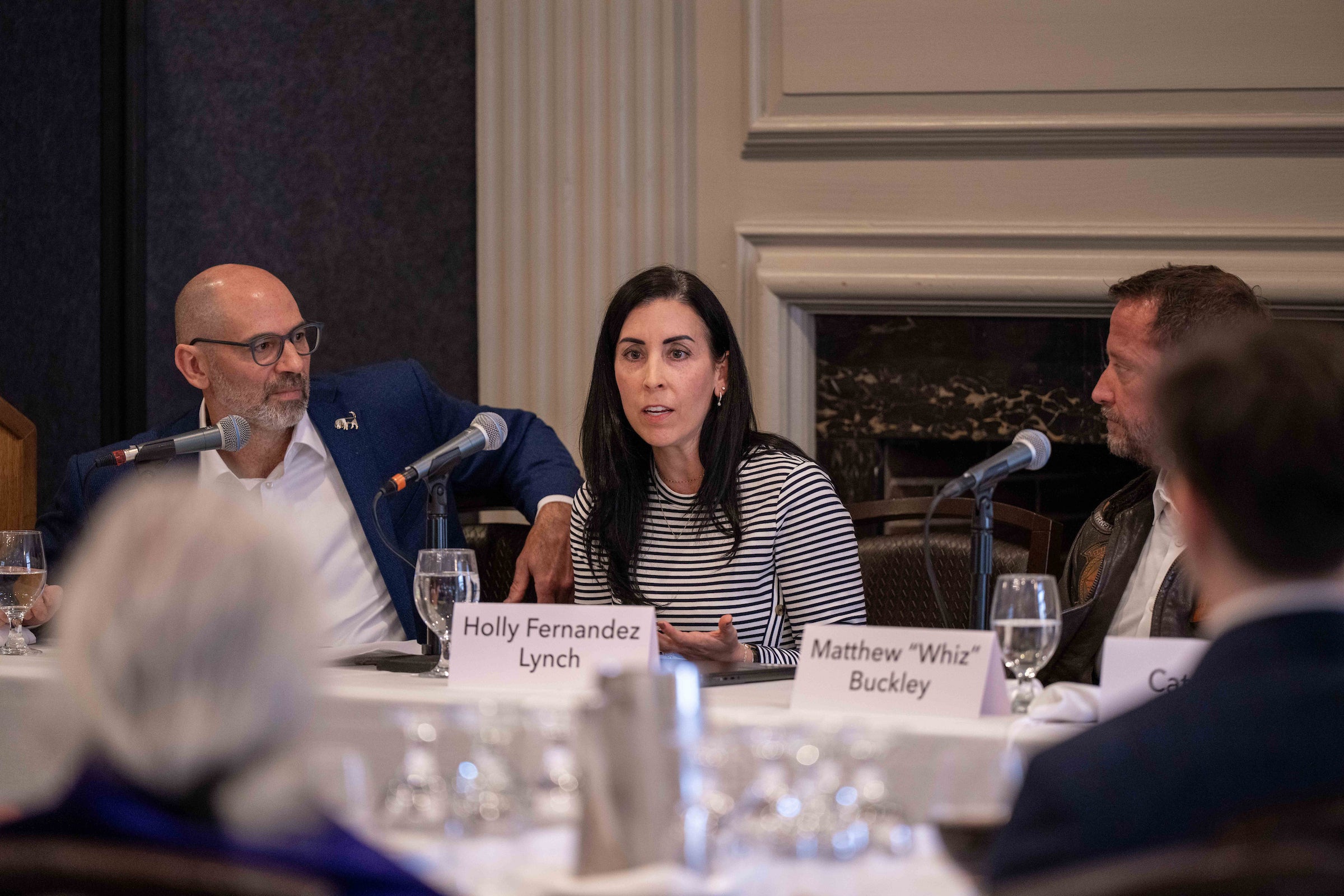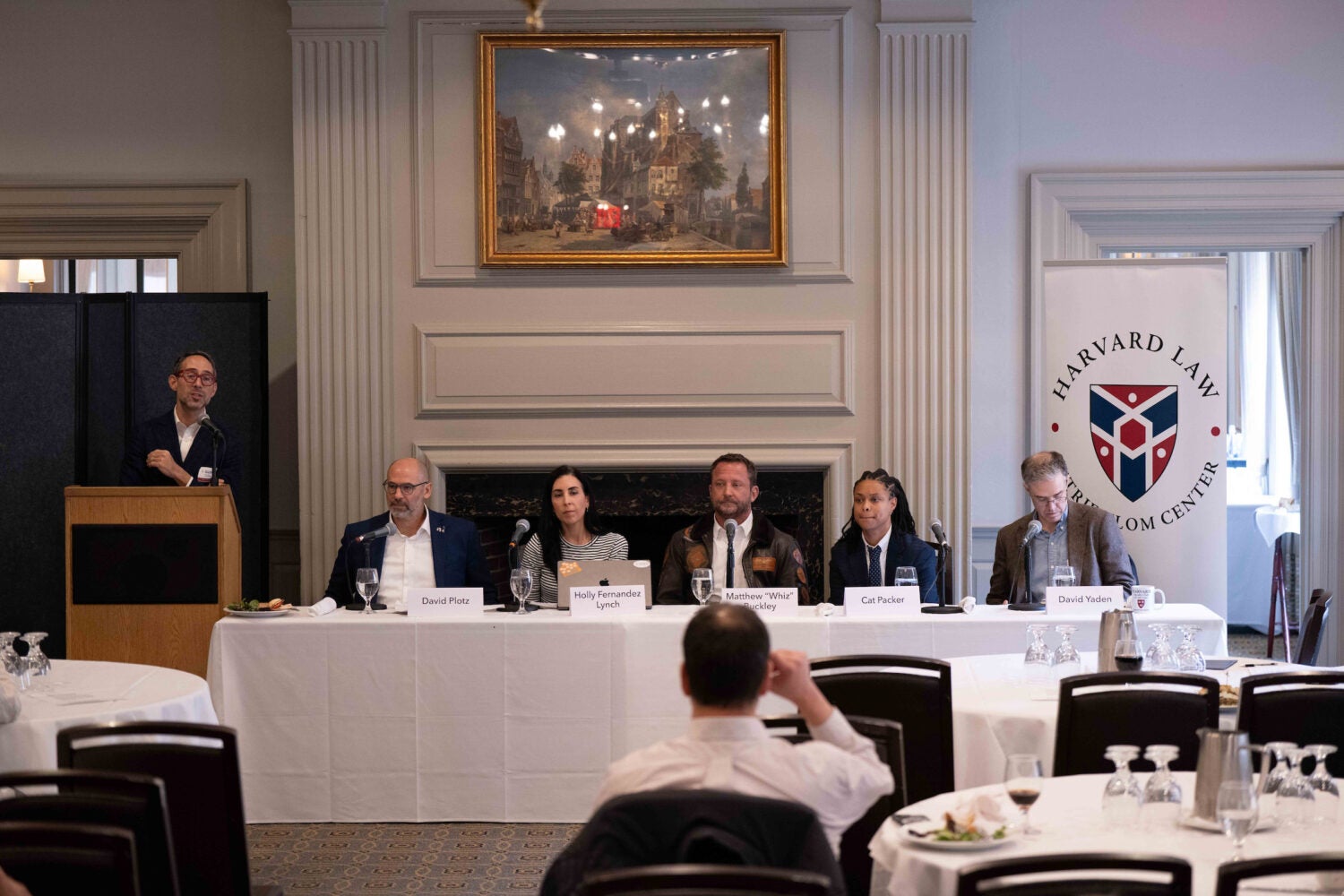The road toward medical legalization of psychedelics remains a long, strange trip — one filled with thorny legal and policy questions, according to experts at an event held last week by Harvard Law School’s Petrie-Flom Center for Health Law Policy, Biotechnology, and Bioethics.
“The public discourse seems to be drawn only to these extreme questions: Psychedelics, yes or no? Enthusiast or skeptic? Too much hype, not enough hype?” said faculty director I. Glenn Cohen ’03. “Although there are places where these are mutually exclusive ‘or’s,’ we’re going to try to bring the ‘and’ into the equation too.”
In his introductory remarks, Cohen, the James A. Attwood and Leslie Williams Professor of Law at Harvard, pointed out that the center launched the Project of Psychedelics Law and Regulation in 2021 to examine the numerous gray areas in the debate over psychedelics research and access.
Moderated by Slate Political Gabfest co-anchor David Plotz, the panel, “Toward Psychedelics Access: Go Faster or Slower?,” brought together fervent advocates for psychedelics access with those who favored a more cautious approach.
In the latter camp was David B. Yaden, a professor in psychedelics research at Johns Hopkins University. Referring to the “classic” psychedelic drugs (LSD, psilocybin, and DMT), he noted they have inherent dangers as well as medical benefits in treating mood disorders.
“There are real risks [to] these substances, which do increase when you get out of the medical research context and into recreational and other settings,” Yaden said.
What’s needed, he added, is more rigorous medical research — something he admitted was difficult to accomplish because those substances are largely illegal.

“It’s a funding issue. Most of the field has been funded by philanthropy up to this point … I’m one of the few researchers in the field lucky enough to have an N.I.H. [National Institutes of Health] funded grant to study psychedelics, but it’s relatively small. We’ve been hearing for many years across different administrations that the N.I.H. will fund this research, and I think we’re still waiting to see it happen …[but] we need large government funding of this research to understand these substances the way we need to.”
“I largely approach drug policy reform as an issue of human rights,” countered Cat Packer, Distinguished Cannabis Policy Practitioner in Residence at the Ohio State University Drug Enforcement and Policy Center.
She cited Michelle Alexander’s book, “The New Jim Crow,” which contends that the war on drugs is the main culprit in the mass incarceration of people of color in the United States. Thus, Packer said, “The drug policies themselves can be just as harmful as the drugs. And there are risks that we have an opportunity to mitigate.”
Moderator Plotz asked whether the legalization of medical cannabis had become a “smokescreen” for people who really wanted it for recreational purposes, and whether there was a risk of psychedelics going that way.
“Some folks may be using these substances for medical purposes; some may be using them for spiritual purposes,” Packer replied. “And some folks might want to just have fun and get high. And I don’t think we should judge them for that. My intention is not to take a moral position on the use of these substances, but when folks are using [them], how can we do so more responsibly … The opportunity we have is to take on a more nuanced taxonomy when we talk about these issues, and they don’t have to be a smokescreen.”

Matthew “Whiz” Buckley, a former Navy TOPGUN fighter pilot, gave an emotional speech about the role that psychedelics played in the treatment of his post-traumatic stress disorder. Buckley endured a sexual assault as a child and the loss of numerous friends during his service, both through both combat and suicide. “It was a culture of ‘Tonight we drink, tomorrow we die,’” he recalled. “I was spiraling the drain, and probably on my way out the door.”
When he heard about psychedelics therapy, he said, his reaction was, “‘Man, go to Mexico and do drugs with Navy SEALS? Sign me up for that.’”
The treatment, with the drug ibogaine, proved to be far more profound than expected. “It was the most spiritual experience of my life,” Buckley said. “I [had] lost my faith for 40 years, easily. I reconnected with my [late] sister, my dad, and my God.”
Buckley said he has since come to regard ibogaine as a sacrament and has founded the No Fallen Heroes Foundation as well as the Sacred Warrior Fellowship, a church built on psychedelic communion. He argued that restricting access to the drug would amount to religious discrimination for him.
“I must have an old copy of the Constitution, because nowhere does it say that the [Drug Enforcement Administration] gets to tell me how I can worship my God,” he said.

But University of Pennsylvania medical ethics/law professor Holly Fernandez Lynch cautioned that this kind of reasoning is unlikely to resonate with the Food and Drug Administration, which is focused on traditional medical models rather than spiritual healing. While the agency is not necessarily opposed to psychedelic treatments, she said, it looks for medically based documentation. She noted that the drug ketamine has been approved for treating depression, while MDMA has not, and that the biotech company Compass is now doing phase-three studies on a synthetic psilocybin product.
“There is a lot of tension in the psychedelic community about what the right pathway is,” Fernandez Lynch said. “I come at this with what I think is a pretty straightforward principle — although it’s controversial in this community — which is, if you’re making medical claims, you should have to prove those medical claims. We should hold psychedelic medicine, psychedelic drugs, to the same standard as other medicines.”
Want to stay up to date with Harvard Law Today? Sign up for our weekly newsletter.
